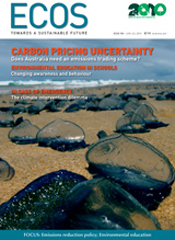
|
Published:
Limits to humans’ heat tolerance
Heat stress would make life intolerable for humans in most currently inhabited regions on Earth if the worst-case global warming scenario were to happen, according to a new study published in the Proceedings of the National Academy of Sciences (PNAS).1
In an often overlooked consequence of climate change, the study looks at potential global temperature increases over the next three centuries and finds that even modest increases would subject many communities to unprecedented levels of heat stress.
Severe warming would be intolerable, because it would push most humans and other mammals beyond the point at which their bodies could eliminate heat through sweating and other biological mechanisms. Though very unlikely this century, this could happen in the following century, the study says.
‘Heat stress is already a leading cause of fatalities from natural phenomena,’ say Professor Steven Sherwood, of the University of NSW Climate Change Research Centre, and Associate Professor Matthew Huber of Purdue University (USA), in the PNAS article.
The study notes that many people believe humans ‘will simply adapt’ to warmer climates by altering their lifestyles and work productivity, ‘reasoning that humans already tolerate a very wide range of climates today. But when measured in terms of peak heat stress – including humidity – this turns out to be untrue’.
1 PNAS, 3 May 2010, http://tiny.cc/7bxx2, doi: 10.1073/pnas.0913352107



